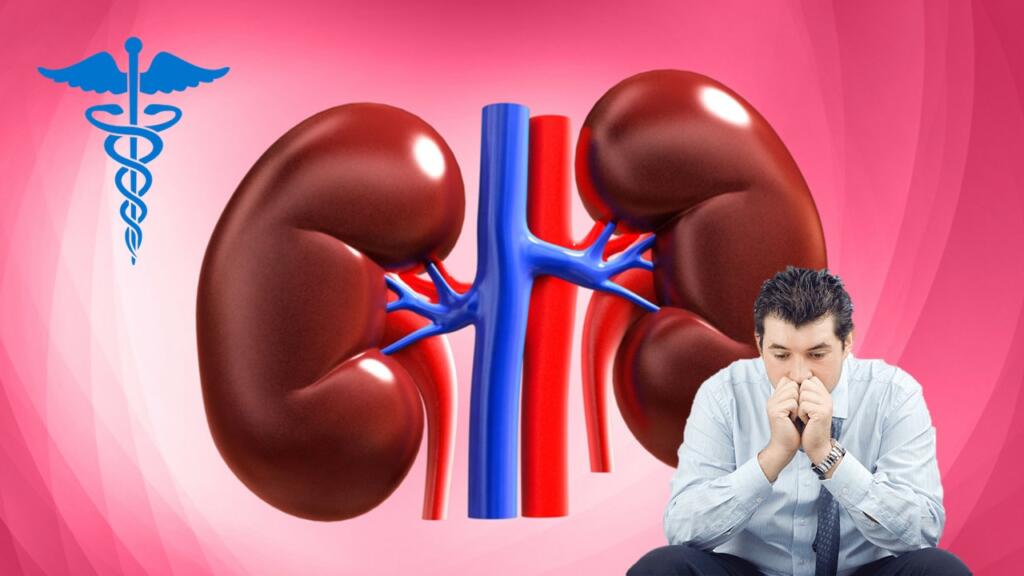Are you aware that your blood pressure can have a significant impact on your kidneys? Hypertension, commonly known as high blood pressure, is a condition that affects millions of people worldwide. It not only increases your risk of heart disease and stroke but can also lead to kidney problems.
In this blog, we will delve into the relationship between blood pressure and kidney health, exploring how hypertension affects the kidneys and what you can do to prevent kidney problems. Remember, maintaining healthy blood pressure is crucial for your overall well-being. Also, it is important that you have a mediclaim policy for yourself and your loved ones, so you are financially covered in case of a medical emergency.
Understanding Hypertension
Hypertension refers to a condition where the force of blood against the walls of your arteries is consistently too high. This condition can be caused by various factors such as genetics, lifestyle choices, or underlying medical conditions. Hypertension is often referred to as the “silent killer” because it typically does not cause noticeable symptoms in its early stages. It is essential to regularly monitor your blood pressure and consult a healthcare professional if you have concerns.
Impact of Hypertension on Kidneys
Your kidneys play a vital role in regulating blood pressure. They filter waste products and excess fluid from the blood, help maintain the balance of electrolytes, and produce hormones that regulate blood pressure. When your blood pressure is consistently high, it puts additional strain on the delicate blood vessels in the kidneys. Over time, this can lead to damage and impair the kidney’s ability to function properly and can lead to various kidney problems, such as:
- Chronic Kidney Disease (CKD): High blood pressure is one of the leading causes of CKD, a condition characterised by the gradual loss of kidney function. The damaged kidneys struggle to filter waste products, resulting in the buildup of toxins and excess fluids in the body.
- Kidney Artery Stenosis: Elevated blood pressure can cause the arteries leading to the kidneys to become narrow, a condition known as kidney artery stenosis. This narrowing reduces blood flow to the kidneys, potentially causing further complications.
- Kidney Failure: Uncontrolled high blood pressure can ultimately lead to kidney failure, a condition where the kidneys lose their ability to function adequately. This requires immediate medical attention, often including dialysis or kidney transplantation.
Risk Factors
Several factors contribute to the development of high blood pressure and subsequent kidney problems. Some of the common risk factors include:
- Unhealthy Lifestyle Choices: Poor diet, sedentary lifestyle, excessive alcohol consumption, and smoking can all contribute to elevated blood pressure and kidney damage.
- Family History: Genetic predisposition plays a role in developing hypertension and kidney problems.
- Age: As we age, the risk of high blood pressure and kidney-related issues tends to increase.
- Certain Medical Conditions: Conditions such as diabetes, obesity, and cardiovascular diseases can raise the risk of hypertension and kidney problems.
Managing Hypertension
To safeguard your kidneys and overall well-being, it is crucial to effectively handle hypertension. In the event of a hypertension diagnosis, your healthcare provider might suggest lifestyle modifications and, on certain occasions, medication. Prevention and management of high blood pressure and kidney problems involve:
- Adopting a Healthy Diet: Incorporate a balanced diet with reduced sodium (salt) intake, emphasising fruits, vegetables, whole grains, lean proteins, and low-fat dairy products.
- Engaging in Regular Physical Activity: Strive to achieve a minimum of 150 minutes of moderate-intensity aerobic exercise or 75 minutes of vigorous-intensity aerobic exercise every week. Engaging in physical activity contributes to reducing blood pressure and enhancing overall cardiovascular well-being.
- Limiting Alcohol Consumption: Excessive alcohol consumption can raise blood pressure. Moderate drinking is defined as up to one drink per day for women and up to two drinks per day for men.
- Refraining from Smoking: Smoking makes your blood pressure go up and harms your blood vessels. Quitting smoking can really help your blood pressure and your overall health.
- Reducing Stress: Chronic stress can contribute to high blood pressure. Engage in stress-reducing activities such as meditation, deep breathing exercises, or hobbies that bring you joy.
- Monitoring Your Blood Pressure Regularly: Regular monitoring allows you to track your progress and take timely action if your blood pressure levels are consistently high.
Role of Health Insurance Cards
In dealing with kidney problems resulting from high blood pressure, having proper medical coverage is crucial. Having a health insurance policy and health insurance card can provide financial assistance in managing the costs associated with diagnosis, treatment, and long-term care. It typically covers expenses such as hospitalisation, medication, dialysis, and even kidney transplantation, depending on the terms and conditions outlined in the policy.
However, it is important to carefully review the policy details, including coverage limits, exclusions, and waiting periods. By understanding the scope of coverage provided by your policy or insurance card, you can ensure you receive the necessary financial support for your kidney-related healthcare needs.
Conclusion
High blood pressure can have a detrimental effect on your kidneys. Hypertension puts strain on the delicate blood vessels in the kidneys, leading to potential kidney problems and even kidney failure if left uncontrolled. It is crucial to prioritise your kidney health by maintaining healthy blood pressure through lifestyle modifications. Remember, prevention is key, and by taking proactive steps, you can significantly reduce the risk of kidney problems associated with high blood pressure.
Also Read: Refreshing and Nourishing: Exploring the 10 Health Benefits of Watermelon Juice
